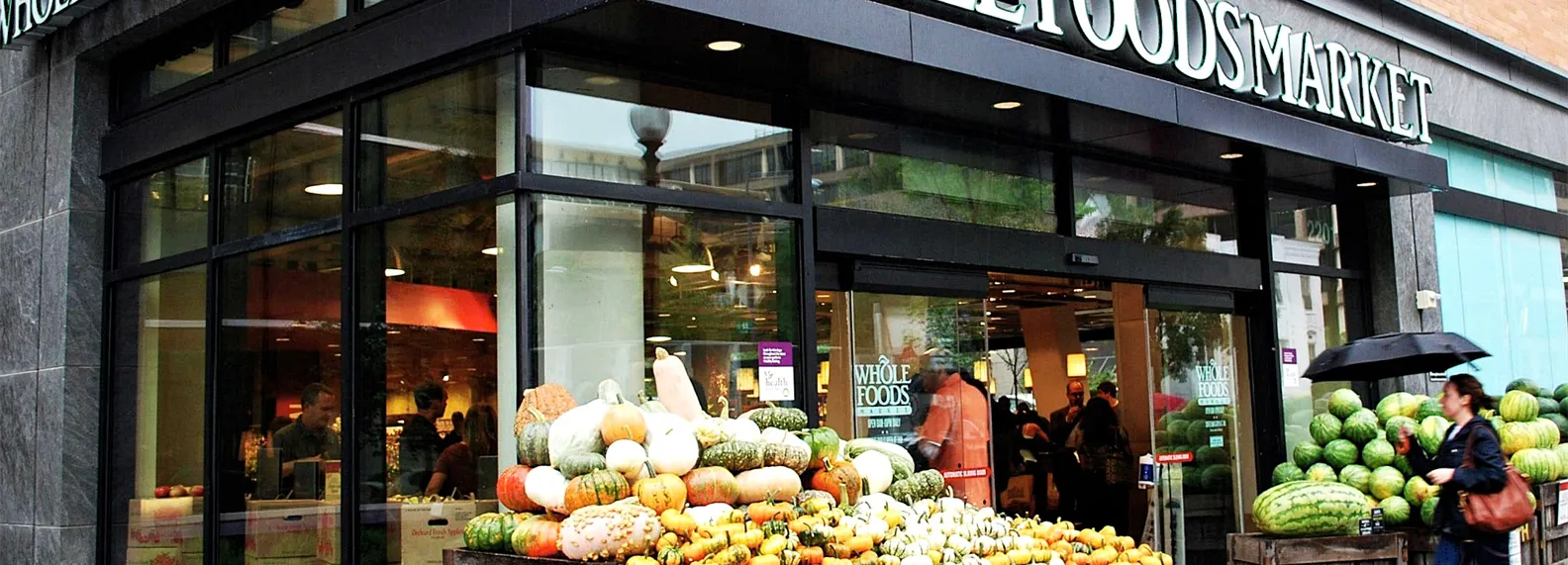Retail Solution Highlights

Whole Foods Market
DC Engineering shares Whole Foods Market’s passion for sustainability and environmental stewardship. DC’s retail teams have designed and provided operational support for refrigeration and other building systems that are innovative, eco-friendly and energy efficient. Many of the Whole Foods Market projects that DC has been involved in have received LEED Silver and Gold, Green Globes, and/or GreenChill certifications.
For over a decade, the DC Engineering/Whole Foods partnership has led to standards development, education, and awareness to help pave the way for mainstream adoption of Natural Refrigerants and other innovative, energy efficient designs.
Advancing the design and implementation of environmentally friendly refrigerant systems:
- HFC distributed systems & Glycol secondary systems to lower the required refrigerant charge and reduce potential risk for leaks.
- Cascade CO2 with HFC refrigeration system provided further improvement in energy efficiency by enabling CO2 to continuously operate in the low pressure, subcritical mode.
- CO2 Transcritical system design to use only natural refrigerants in the system and improve overall energy efficiency.
- CO2 Transcritical system integrated into a combined heat and power (CHP) system, where gas-fired generators were used during peak hours to reduce energy costs.
- All-natural, Cascade CO2 ammonia refrigeration system that was a large step forward in all natural systems, improving energy efficiency and lowering operating pressures.
- All-natural Propane and CO2 system in a Cascade configuration; a climate friendly, highly energy efficient system that re-directs heat from the CO2 side of the system, and then rejects heat through independent propane chillers
Assisting with load shifting energy storage systems for lower power costs and reduced stress on electricity grid:
- DC Engineering provided design review, store integration, and commissioning on an innovative thermal energy storage system that freezes a saline solution during off-peak hours for conversion to energy for use on-peak timeframes.
- Project underway to utilize high capacity battery systems for load shifting away from on-peak hours. DC provided load planning and design for integration of the battery system into the store’s electrical systems.
Design solutions for Mixed Use Environments:
- DC Engineering has partnered with Whole Foods and other organizations in the planning, coordination and design of some of Whole Foods’ most high profile and challenging projects in high density, mixed use environments, including the 2001 Market Street, and Ocean Avenue stores in San Francisco. The layouts of these stores require creative and sustainable design, and an efficient use of space in order to help realize the overall vision of combining downtown living with energy efficient retail establishments.